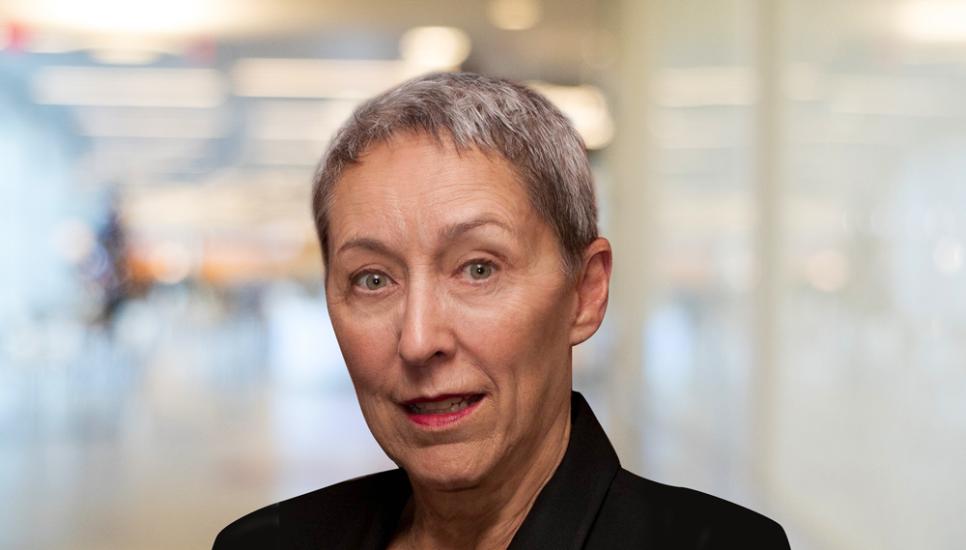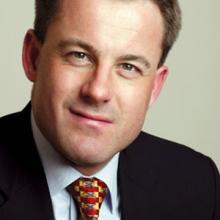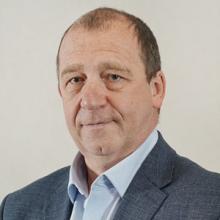Giving new meaning to the term 'next gen advisory?

Much has been written about succession and transition in family enterprise—and much more has been written about the role of the next generation in the company, the family, and in governance. Entire courses and plans for next gen development and education have been created.
But what about the next generation of advisers? If we use medicine as an example, we know that the education and training of medical professionals is vastly different from what was offered even 10 years. Advancements in technology, new understanding of genomics, cultural change—even language—have changed the medical landscape.
One could argue that business schools have (reluctantly perhaps) also tried to modernise in addressing the speed of change in certain industries, the millennial mindset toward work/life balance, the ease of global communications, and the changing landscape of the jurisdictional requirements when starting or moving a business.
 But what about the family companies? Have their expectation of advisers kept pace with their expectations of their medical professionals—not to mention their expectations of their IT department? Do they still think in terms of “trusted advisers”, the family lawyer, the accountant or accounting firm, their alma maters, as a source of education for future generations? I would argue “yes,” for the most part. And I would further argue that this could be a dubious approach when vetting new advisers—or even evaluating current ones.
But what about the family companies? Have their expectation of advisers kept pace with their expectations of their medical professionals—not to mention their expectations of their IT department? Do they still think in terms of “trusted advisers”, the family lawyer, the accountant or accounting firm, their alma maters, as a source of education for future generations? I would argue “yes,” for the most part. And I would further argue that this could be a dubious approach when vetting new advisers—or even evaluating current ones.
In the last 30 years, the field of professional family enterprise advising has been created, structured, and has expanded across the globe. Moreover, it has been validated by extensive research in scholarly publications. It has even been recognised by some governments as a unique phenomenon. While thousands of professionals and their clients have benefitted from this next gen approach to advising, hundreds of thousands, maybe more, have not. This is a sobering fact when even the most conservative analysis estimates that 50% of the world’s economy is dependent on family enterprises, many of them multigenerational—and many more hoping to be multigenerational.
 To switch to a musical model, imagine that 50% of the students in a conservatory were potential Mozarts or Yo-Yo Mas yet only a fraction of the instructors were equipped to teach them. Or, perhaps even worse, if they could graduate from the conservatory without ever learning about Bach.
To switch to a musical model, imagine that 50% of the students in a conservatory were potential Mozarts or Yo-Yo Mas yet only a fraction of the instructors were equipped to teach them. Or, perhaps even worse, if they could graduate from the conservatory without ever learning about Bach.
Using the medical example, what if the professionals didn’t know the differences between chest x-rays and MRIs? In both models, neither the aspiring musicians nor the dedicated technologists knew that there were international learning communities to advance the field, promote success, and influence public policy.
So, what does this mean for the next gen advisers to family enterprises? There are several points to consider:
· Core competencies: We’ve entered a new era where the clients’ expectations of family enterprise advisers will be significantly higher, particularly with regards to the impact of technology on communications, genomics, and on the increasingly flexible understanding of family, “familiness”, and gender. Even staying in the traditional disciplines of law and finance, behavioral and management science will require incorporating a vast amount of cross disciplinary information.
· Education: Traditional MBA’s are already being replaced by certificate and certification programs within and outside of the university systems. Are there enough of these? Are they good enough? Is licensing in the picture (in the case of our medical model)?
· Trusted advisers: If they continue to exist, trusted advisers will become much more like hubs or charging points and less like “secret companions.” Individuals in these roles must be able to access and process information of their clients swiftly. For example, I have been told of a company consisting of a group of doctors who can be employed by a family business only when there is a medical emergency. These specialists work together with the onsite medical team. They gather and integrate the information, utilise their own areas of specialisation and then work with the family to come to a decision.
 One thing is for certain—this is going to be stimulating! The combination of progressive, flexible, risk-taking family enterprises combined with well-educated, tech-savvy, life-long learners who have become family enterprise advisers through rigorous education can be a force for significant economic and cultural change throughout the world.
One thing is for certain—this is going to be stimulating! The combination of progressive, flexible, risk-taking family enterprises combined with well-educated, tech-savvy, life-long learners who have become family enterprise advisers through rigorous education can be a force for significant economic and cultural change throughout the world.
Judy Green, PhD is president of the Family Firm Institute. The views expressed in this article are those of the author and are not intended to represent the views of FFI or its members.
FFI is an international professional association whose mission is to be the most influential global network of thought-leaders in the field of family enterprise. We provide research-based learning and relevant tools for advisors and consultants, academics and family enterprise members to drive success.
Professionals, educators and researchers as well as family enterprise members from more than 80 countries across the globe belong to FFI. Together they create the oldest and most prestigious multidisciplinary professional association for family enterprise in the world.
Read FFI’s complimentary white paper Getting Started as a Family Enterprise Professional. Published by the Family Firm Institute, this white paper is designed for new and seasoned advisers and consultants. It combines more than 30 years of research and practice in the field and provides practitioners with a resource to understand and develop the skills essential in working with clients. It is also an educational guide for use with clients to explain the unique characteristics, approaches, and values to look for when hiring qualified family enterprise professionals.






